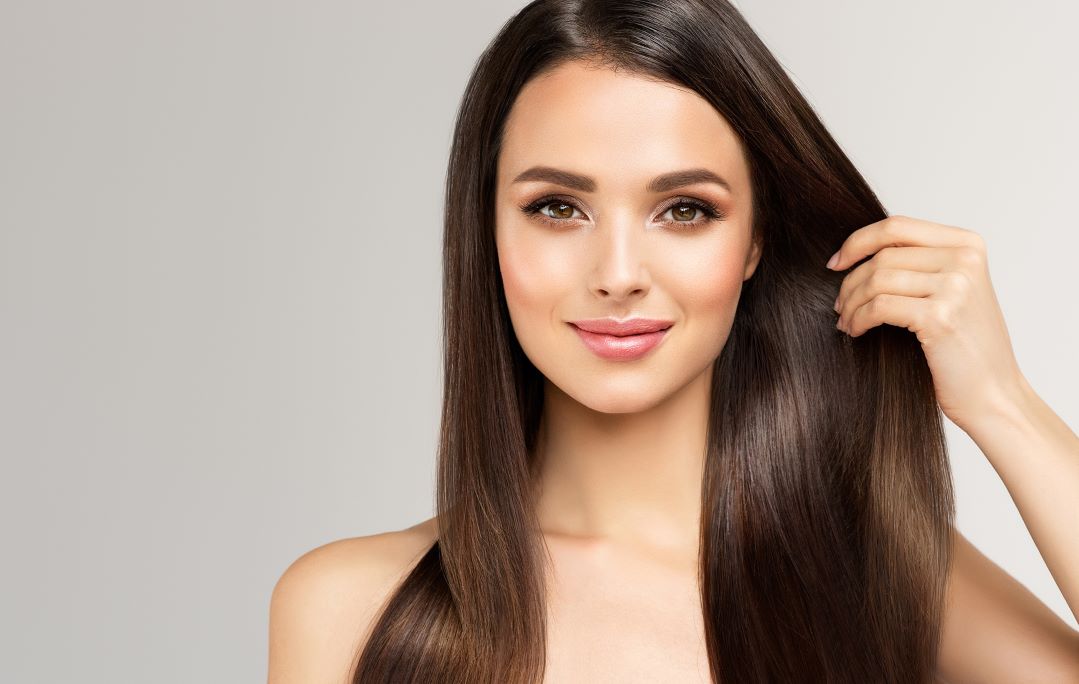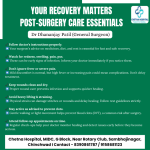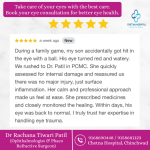We all want healthy, beautiful hair, but in the quest for perfect locks, it’s easy to get swept up in misleading advice and age-old myths. From ideas passed down through generations to internet trends, many of us have adopted habits that may not be doing our hair any favors. To help you make informed choices and achieve your best hair yet, let’s debunk some of the most common hair care myths and explore the real facts behind them.
Myth 1: Cutting Hair Makes It Grow Faster
The Myth: Regular haircuts will make your hair grow faster.
The Fact: Hair growth happens at the roots, not the ends. Cutting your hair doesn’t influence how quickly your hair grows. Hair grows at an average rate of about half an inch per month, regardless of trims.
Why the Myth Persists: This misconception likely comes from the fact that regular trims make your hair look healthier by preventing split ends. While cutting your hair won’t speed up growth, it can prevent split ends from traveling up the strand, making your hair appear thicker and healthier.
Myth 2: Washing Hair Daily Is Essential for Cleanliness
The Myth: To keep your hair clean and healthy, you must wash it every day.
The Fact: Washing your hair too frequently can strip away natural oils, leading to dryness and even an overproduction of oil as your scalp tries to compensate.
Why the Myth Persists: Many people associate cleanliness with frequent washing. However, for most hair types, washing 2-3 times a week is sufficient to maintain a clean and balanced scalp. Washing daily is only recommended for very oily hair types or those exposed to excessive dirt and sweat.
Myth 3: Brushing Your Hair 100 Times a Day Will Make It Shinier
The Myth: Brushing your hair a lot makes it smoother and shinier.
The Fact: Excessive brushing can lead to breakage, split ends, and hair damage. While gentle brushing can help distribute natural oils from your scalp through your hair, there’s no need to overdo it.
Why the Myth Persists: This old myth may have originated from the idea that stimulating the scalp can promote healthy hair. While brushing a few times daily can help remove tangles and stimulate circulation, there’s no need to overbrush. In fact, over-brushing can do more harm than good.
Myth 4: Dandruff Is Caused by a Dry Scalp
The Myth: Dandruff is a result of having a dry scalp, and moisturizing it will make the flakes go away.
The Fact: Dandruff is often caused by an oily scalp and an overgrowth of a yeast-like fungus called Malassezia. Moisturizing a scalp with dandruff may exacerbate the issue by adding more oil to an already oily surface.
Why the Myth Persists: Dandruff and dry scalp can both cause flakiness, leading to confusion. While dry scalp needs hydration, dandruff often requires a different approach, such as antifungal shampoos to manage the yeast growth.
Myth 5: Stress Causes Gray Hair
The Myth: Stress turns your hair gray.
The Fact: Genetics, not stress, is the primary factor that determines when your hair will turn gray. Stress can have various impacts on your body, but it’s not directly responsible for causing gray hair.
Why the Myth Persists: Many people report noticing gray hairs after particularly stressful events. While extreme stress can lead to temporary hair shedding (telogen effluvium), the color change itself is determined by genetics and the natural aging process.
Myth 6: Plucking Gray Hairs Makes More Grow Back
The Myth: If you pluck a gray hair, two or more will grow back in its place.
The Fact: Plucking a gray hair won’t cause more to grow, but it can damage the hair follicle and potentially lead to thinning over time. If you pluck too many, it may result in sparse patches.
Why the Myth Persists: Gray hairs often stand out, making people more aware of them once they’ve started to appear. The perception that more gray hairs are growing could simply be due to the natural progression of graying over time.
Myth 7: Cold Water Makes Hair Shinier
The Myth: Rinsing your hair with cold water will seal the cuticle and make it shinier.
The Fact: While cold water can temporarily help close the hair cuticle, it won’t dramatically impact long-term shine or health. The overall condition of your hair—its moisture, protein balance, and health—is what determines shine.
Why the Myth Persists: There’s some truth to this idea, as cold water can reduce frizz by laying the cuticle flat. However, for sustained shine, focus on proper hydration, conditioning, and protecting your hair from heat and chemical damage.
Myth 8: Split Ends Can Be Repaired
The Myth: Certain products can repair split ends.
The Fact: Once a hair strand splits, it can’t be mended. Products that claim to “fix” split ends may temporarily seal them, but the only true solution is to trim them off.
Why the Myth Persists: Some products can smooth the appearance of split ends by coating the hair shaft, but this is only a temporary fix. Regular trims are necessary to keep split ends from traveling up the hair shaft and causing more damage.
Myth 9: Towel Drying Is Gentle for Hair
The Myth: Wrapping or rubbing your hair with a towel is the best way to dry it.
The Fact: Rubbing your hair with a towel can cause friction, leading to breakage and frizz. Instead, gently blot or use a microfiber towel to absorb moisture.
Why the Myth Persists: Many people use towels out of convenience, but traditional cotton towels are rough on delicate, wet hair. Opt for a microfiber towel or a soft cotton T-shirt to avoid causing damage.
Myth 10: Hair Products Stop Working Over Time
The Myth: If you use the same shampoo or conditioner for too long, it will stop being effective.
The Fact: Hair doesn’t develop a resistance to products. If your shampoo or conditioner seems less effective, it’s likely due to buildup or changes in your hair’s needs over time.
Why the Myth Persists: Over time, you may notice your hair feels different, which can be due to product buildup, seasonal changes, or hormonal fluctuations. If your hair feels weighed down, try clarifying shampoos to remove buildup rather than switching products.
Myth 11: Natural Oils Make Hair Greasy
The Myth: Avoid using oils on your hair, as they’ll make it greasy.
The Fact: Natural oils like argan or jojoba oil can nourish your hair without making it greasy when used properly. Focus on applying oils to the ends, avoiding the scalp.
Why the Myth Persists: Many associate “oil” with “greasy,” but lightweight oils can provide hydration and shine, especially for dry or damaged hair. The key is using the right type of oil and applying it sparingly.
Conclusion: Navigating Hair Care Myths
With so much misinformation surrounding hair care, it’s easy to fall into routines based on myths rather than facts. By understanding what really works and what doesn’t, you can tailor your hair care regimen to your specific needs. Focus on gentle, nourishing practices and be cautious of one-size-fits-all advice. After all, healthy hair is happy hair!
For Consultation Contact us on 9158681123
Website – www.chetnahospital.co.in
Address – Chetna Hospital, Sambhajinagar, MIDC, G Block, Near Rotary Club, Chinchwad 411019
.
.
.
#hospital#pune#pcmc#chinchwad#health#healthcare#skin#dermatologist#skinspecialist#skinclinic#hairdermatologist#skindoctor#dermatologistappointment#skincareprofessional#derma#skindr













